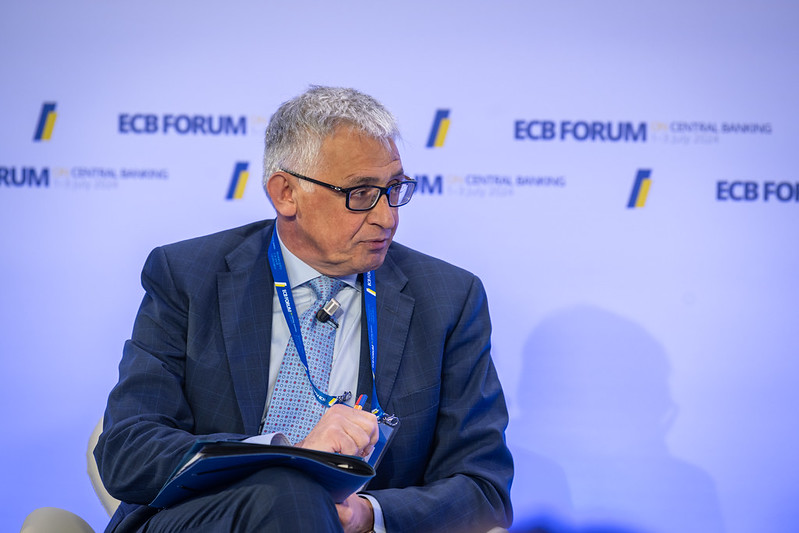ECB’s Cipollone: Digital Euro Will Complement Cash, Not Replace It
9 October 2025

By David Barwick – FRANKFURT (Econostream) – European Central Bank Executive Board member Piero Cipollone said the ECB’s goal in developing a digital euro was to preserve citizens’ freedom to pay with public money in a digital form, not to eliminate cash.
In an interview with Baltic news portal Delfi, Cipollone said, “We certainly do not want to eliminate a key form of the money that we issue, one that many people remain attached to.” He stressed that the ECB was “the strongest voice in asking to reduce exceptions to the obligation to accept cash,” noting that the central bank was investing in a new series of banknotes and backing EU legislation to strengthen cash’s legal tender status.
“The digital euro will complement physical cash by offering a digital form of cash,” he said. “We do not want to replace cash. We want cash to exist in a physical form and digital form so that cash can continue to thrive in the digital era.”
Cipollone said the ECB’s objective was to ensure Europeans could make digital payments anywhere in the euro area using sovereign money rather than foreign private systems. “If we do not provide people with a digital equivalent to cash, we constrain their freedom,” he said.
The digital euro, he said, would reduce dependence on non-European payment providers, which “can be weaponized against us,” and would help lower merchant fees, increase competition and strengthen Europe’s monetary sovereignty.
It would cover all major use cases – point-of-sale, e-commerce, peer-to-peer and government payments – through bank or payment service provider apps. Users could link wallets to bank accounts and make instant payments, including offline transactions that Cipollone described as “completely anonymous.”
He said privacy would be ensured through technology, regulation and openness to future privacy-enhancing innovations. Offline payments will be “as private as cash,” he said, while online transactions would use encrypted codes so that the ECB does not know who the payer or the payee is.
Cipollone said the technical work was on schedule and that the ECB would not issue the digital euro until EU legislation was complete. He expected the legislative process to conclude in the second half of 2026.
He said banks would be remunerated for services provided, while merchants would benefit from lower fees and greater bargaining power with card schemes. “We will not charge scheme fees, nor will we charge for the use of our infrastructure,” he said.
